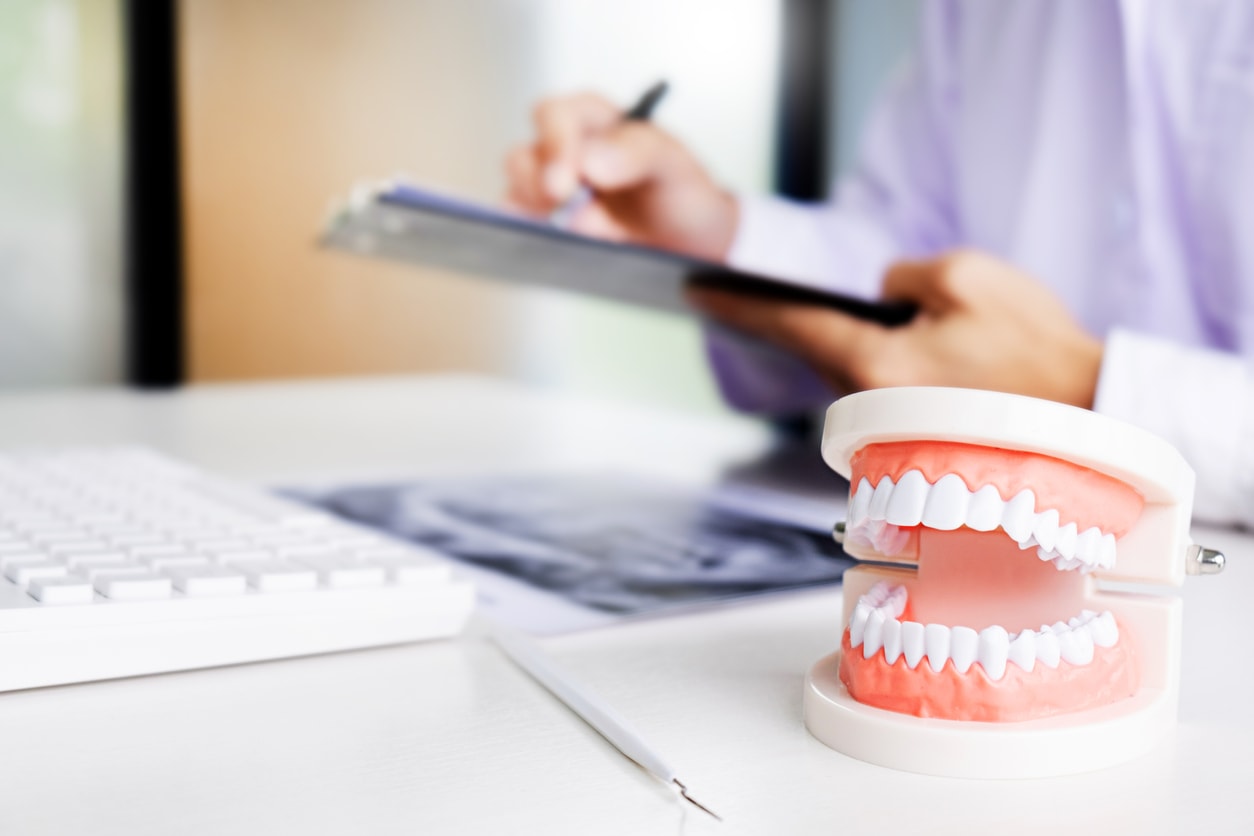As people age or an accident occurs in their life, they may find they need dentures. Dentures make it possible for those with missing teeth to feel confident again. However, many people find dentures to be a nuisance because of the way it can move around in the person’s mouth, fall out when chewing difficult foods, or generally be uncomfortable. This is why denture stabilization has become an increasingly popular method of acquiring solid dentures.
To learn more about dental implants in downtown Los Angeles, reach out to Dr. Kao today. Dr. Kao is a board-certified periodontist in Los Angeles and a faculty member at the UCLA School of Dentistry.
What is Dental Stabilization?
Denture stabilization is when implants are added in the mouth to keep the dentures firmly in place in the mouth. Single tooth implants are usually most common, but when a person needs most of their teeth replaced, dentures are a great way to meet this need. As mentioned earlier, they can become quite uncomfortable, or move around a lot, and no one wants to end up biting into a sandwich and losing their dentures — how embarrassing! In addition, most denture adhesives taste really bad and thus cause the mouth to have this weird taste in it all day, making eating or drinking less enjoyable.
Benefits of Denture Stabilization
Denture stabilization can benefit many attributes of your life, including:
- Aid in the ability to chew food, thus promoting better digestion.
- Much more comfortable than other dentures.
- Easier to clean — it’s just like you have real teeth again! Just brush and floss!
- Decrease of mouth sores and gum infection.
- Provides more ease in talking, as the dentures are unable to move around in the mouth.
- Provide a permanent solution to missing teeth.
How Does it Work?
Denture stabilization is a process of having implants inserted in the jawbone to then attach to the dentures to stabilize them into the mouth. Regular dentures just sit on top of the gum and therefore have no rooted support into the mouth. While the patient may not have teeth in the jaw, they will have enough bone in the jaw to support the implant. By implanting into the jawbone, this also helps prevent bone tissue loss. Because the dentures are firmly rooted spot in the mouth, they will no longer move around. This is sometimes held together by attachments from the dentures that are clipped onto attachments on the implants. Patients may also prefer to have a procedure where there is a fixed crown or bridgework in order to gain a more permanent result. These stabilized dentures can’t be removed at all, while the ones with attachments can.
Types of Stabilized Dentures
There are two different types of denture stabilizations: ball-retained and bar-retained dentures. Ball-retained dentures are also known as stud-attachment dentures. For these, the implants in the jawbone have metal attachments on them that are used to fit onto the attachments on the dentures. The implant attachments are usually in the shape of a ball while the denture attachments are more like sockets. Thus, the ball fits into the socket. The opposite may be true in some cases, but ultimately the idea is the same: ball and socket.
Bar-retained dentures, on the other hand, require at least two to five implants in your jawbone. A metal bar that curves around your jawbone is attached to all of these implants. The denture goes over the bar, and the implants or dentures or both may have attachments on them to help clip them all together. To find out more about the implant process, check out some more information from Colgate.
Why Are Dentures Important?
Some people may think, “why get dentures at all?!” Many people opt out of getting dentures because they can’t afford it. Another reason is that it takes time to schedule and to do the procedure. While missing teeth may not bother some people or their confidence, there are other reasons for getting dentures. Without teeth, facial structures can begin to disintegrate, it can also make you look way older than you are, it decreases your ability to eat and affects your ability to speak well, and it can also lead to dental hygiene issues.
If you’re interested in learning more about denture stabilizers and your options, please don’t hesitate to call Dr. David S. Kao for a consultation today: 213-250-7554.



